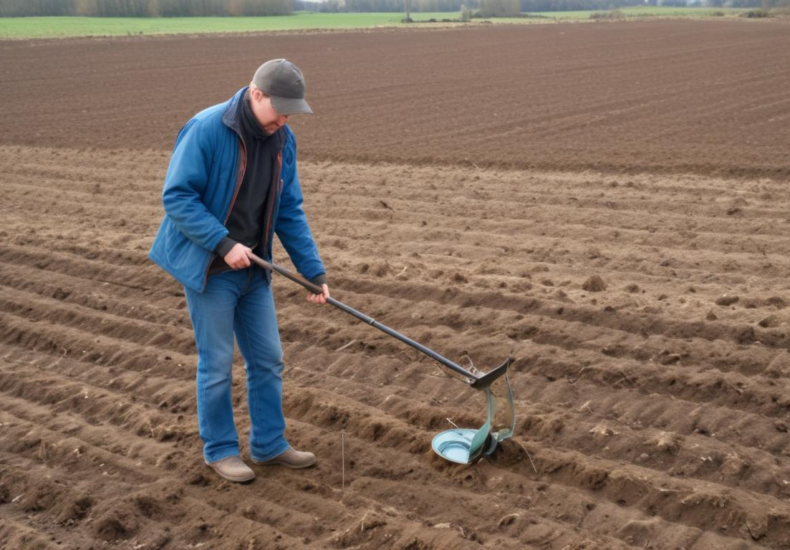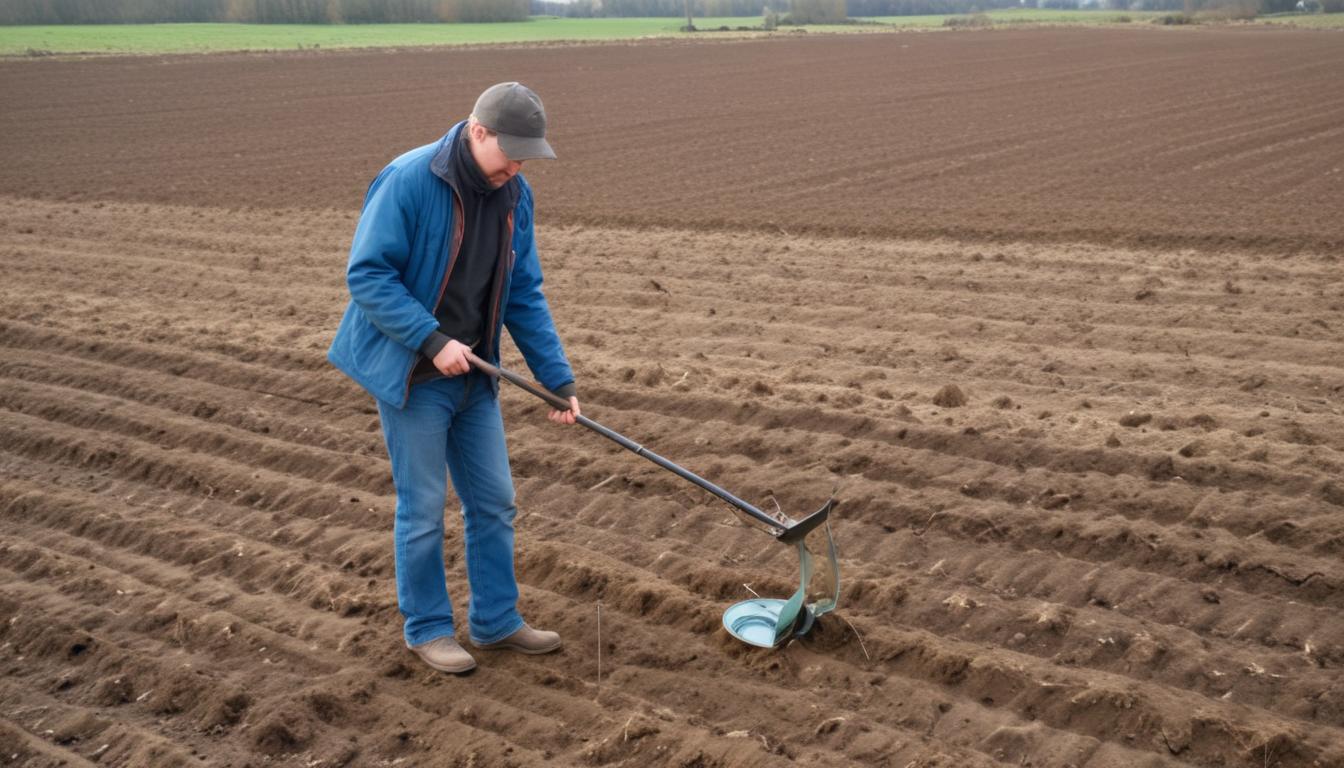
Metal detecting on farm land: what to know first
When planning to conduct metal detecting activities on farm land, the first and foremost consideration should involve understanding the legal implications. Each country and often individual states or regions have their own specific rules and regulations regarding metal detecting, particularly on farm fields which are private property. It is essential to be aware that doing any form of excavation or metal detecting without explicit permission from the landowner can lead to legal repercussions, including fines or prosecution.
In the United States, for instance, the Antiquities Act and the Archaeological Resources Protection Act may govern activities on specific types of lands, protecting historical and cultural artifacts from being disturbed. Even if a farm isn’t covered under such specific laws, general laws regarding trespass and property rights apply, making it illegal to metal detect without consent. Additionally, it’s important to understand whether the land has any special designation such as being part of a historical site or requiring a special permit for such activities. Ignoring these laws can not only end your metal detecting journey but also harm archaeological or cultural heritage.
Seeking permission is not merely a legal formality but a necessary step in ensuring responsible metal detecting. While the excitement of uncovering hidden treasures is certainly appealing, the integrity of farm lands and the livelihood of farmers must remain a priority. Responsible detectors always ensure they are legally compliant before stepping onto any field with their equipment.
Therefore, researching local laws and always obtaining proper permission are the critical starting points for any metal detecting enthusiast looking to explore agricultural fields safely and legally. These steps not only safeguard the hobbyist from legal issues but also set the stage for respectful and successful detecting outings.
How to obtain permission for metal detecting
Obtaining permission to metal detect on farm land is crucial and requires clear communication and respect for the landowner’s rights and property. The process begins with identifying who owns the land. This information can typically be found through local government offices or online databases that hold property records. Once you have the owner’s contact information, the next step is approaching them for permission.
When requesting permission, it’s important to be polite and professional. Prepare a brief outline of what metal detecting involves and how you plan to conduct your activity responsibly. Some farmers might not be familiar with metal detecting and may have concerns about crop damage or disturbances to their land. Be ready to address these concerns by explaining the precautions you will take to minimize your impact on the property.
It may be beneficial to put your request in writing, either as a formal letter or an email. This not only provides clarity but also shows your sincerity and professionalism. Make sure to highlight that you will adhere to any conditions they set and that you are willing to share any findings of historical significance or value with them. In some cases, offering a small share of any items sold or a nominal fee for permission can help sweeten the deal, though this approach depends heavily on the individual landowner’s disposition and local customs.
Moreover, be prepared for the possibility of denial, and respect the landowner’s decision if they choose not to grant you access. If they do give you permission, make sure to get it in writing to avoid any potential misunderstandings. This document should outline where you can detect, any areas that are off-limits, and any other conditions the landowner has requested.
Always leave the farm fields in the condition they were when you arrived. The best detecting tips include carrying all items you bring, filling any holes you dig, and not leaving behind any litter. Demonstrating your respect for the farm and the landowner’s property not only ensures you leave a positive impression but also increases the likelihood of being allowed to return in the future.
Best practices for respecting farm property and operations
Respecting farm property during metal detecting adventures is integral to maintaining a positive relationship with landowners and ensuring recurring access to the land. Primarily, it is essential to physically respect the property. This includes avoiding any actions that can lead to crop damage or negatively affect farm operations. For instance, it is wise to avoid metal detecting during critical agricultural periods such as planting or harvesting seasons. Detecting during less critical times can minimize any potential disruption to farming activities.
Additionally, adhering to specific routes within the farm fields that are least disruptive to crops and other farm structures is crucial. Always use established paths or walk on the edges of fields to avoid trampling young or growing crops. If you are uncertain about where it’s safe to walk, seek guidance from the landowner. This kind of consideration is not only respectful but also can prevent damage that might lead you to lose your detecting privileges.
When it comes to digging, employ best practices and detecting tips that ensure minimal impact on the land. Use smaller digging tools like a hand trowel instead of larger spades and be meticulous about refilling any holes. When refilling, ensure the topsoil is replaced as it was, which helps in preserving the farm’s integrity and reduces the visual impact of your detecting activities.
Moreover, mindful actions such as avoiding farm areas with livestock or special crops, recognizing and respecting any marked private areas, and following any additional rules set by the farmer are crucial. Always remember that the smoother your activities blend with the operational routines of the farm, the better your relationship with the landowner will be. Such respect not often leads to ongoing permission for metal detecting but also fosters a general goodwill that could lead to referrals or more opportunities from other landowners.
It is good practice to keep the farmer updated about your finds, particularly if you discover anything that might be of historical or operational significance to them. This openness not only shows respect for their land but also underlines a partnership approach in your detecting activities. By observing these practices, metal detectorists can ensure they are viewed positively by the farming community, encouraging continued access and cooperation.
Essential metal detecting equipment for farm land

When venturing into metal detecting on farm fields, having the right equipment is essential for both effectiveness and ensuring minimal disruption to the land. A proper metal detector that suits your needs is paramount. For farm land, look for detectors that have settings for ground balance adjustments to counteract the mineralization often found in agricultural soil, which can affect the detector’s performance.
An essential tool in any metal detectorist’s arsenal is a pinpointing tool. This device helps in locating the exact position of a find. This precision ensures smaller holes and less disturbance to the soil and plants. A hand trowel, preferably with a narrow blade, is preferable over a full-size shovel as it allows for more careful digging and easier restoration of the soil’s original condition, adhering to best detecting tips for minimal impact.
Also, consider a headset to connect to your detector. Not only will it help you hear the subtle differences in tone for better identification of what lies beneath, but it will also reduce disturbances to any farm operations or livestock. For your haul, a finds pouch is necessary. It’s practical for carrying your finds, but equally important for carrying out any trash you may uncover, adhering to principles of ‘Leave No Trace’ ethics.
When detecting on farm fields with permission, preparing for all weather conditions is crucial, especially since farmland can be expansive and exposed. Weather-resistant clothing and sturdy boots are recommended for protection against the elements and the terrain. Sunscreen and a hat are advisable during sunny days, while waterproof gear is paramount during rainy seasons to ensure comfort and safety while detecting.
Each piece of equipment should be chosen with care, respecting the operational and environmental considerations of the farms where detecting is planned. Following these guidelines not only helps in making your search more fruitful but also demonstrates a proactive approach in minimizing impact, ensuring ongoing access to these lands for future detecting adventures.
Tips for identifying potential hotspots on agricultural fields
Identifying potential hotspots for metal detecting on agricultural fields involves a keen understanding of the history and usage of the land. A key factor is researching the history of the farm fields, which can often reveal areas more likely to yield finds. Old maps can be valuable resources, pinpointing former homesteads, barns, or other structures that used to exist on the property but are now gone. These areas may still hold relics or artifacts left behind from earlier times.
Another crucial aspect is observing the natural lay of the land. High traffic areas from the past, such as paths leading to water sources, gates, or old roads, are typically good starting points. Over time, these paths could have seen considerable use, increasing the likelihood of dropped items. While modern farming operations might have altered the landscape, remnants of these old paths and usage areas can sometimes still be discerned through careful observation.
Conversations with the landowner can also provide invaluable insights that aren’t visible through maps or physical surveys. They can share anecdotal history about the land, including areas that were once gathering places, markets, or involved in historical local events. Gaining this insight not only enhances your understanding but also demonstrates respect for the owner’s knowledge and history, possibly strengthening your permission to continue detecting.
Employing aerial photographs can also yield clues about past land uses that are not evident at ground level. These might show depressions or outlines where buildings once stood or where activities were concentrated. Technology such as Google Earth can be helpful tools in spotting these traces from a bird’s eye view, directing your focus when you are on the ground.
When you start detecting, keep an eye on the types of objects you find and their locations. Certain items grouped together or found along a line could suggest you’re close to a hotspot. Refining your search area based on initial finds can lead to more significant discoveries, optimizing your time and effort on the farm fields.
Lastly, when employing these detecting tips, always ensure that any digging and searching techniques abide by the permissions granted by the landowner and respect the integrity of their land. Responsible practices help maintain good relationships with landowners, ensuring ongoing access to these fruitful detecting environments.
You may also like
Archives
Calendar
| M | T | W | T | F | S | S |
|---|---|---|---|---|---|---|
| 1 | 2 | 3 | 4 | |||
| 5 | 6 | 7 | 8 | 9 | 10 | 11 |
| 12 | 13 | 14 | 15 | 16 | 17 | 18 |
| 19 | 20 | 21 | 22 | 23 | 24 | 25 |
| 26 | 27 | 28 | 29 | 30 | 31 | |
Leave a Reply